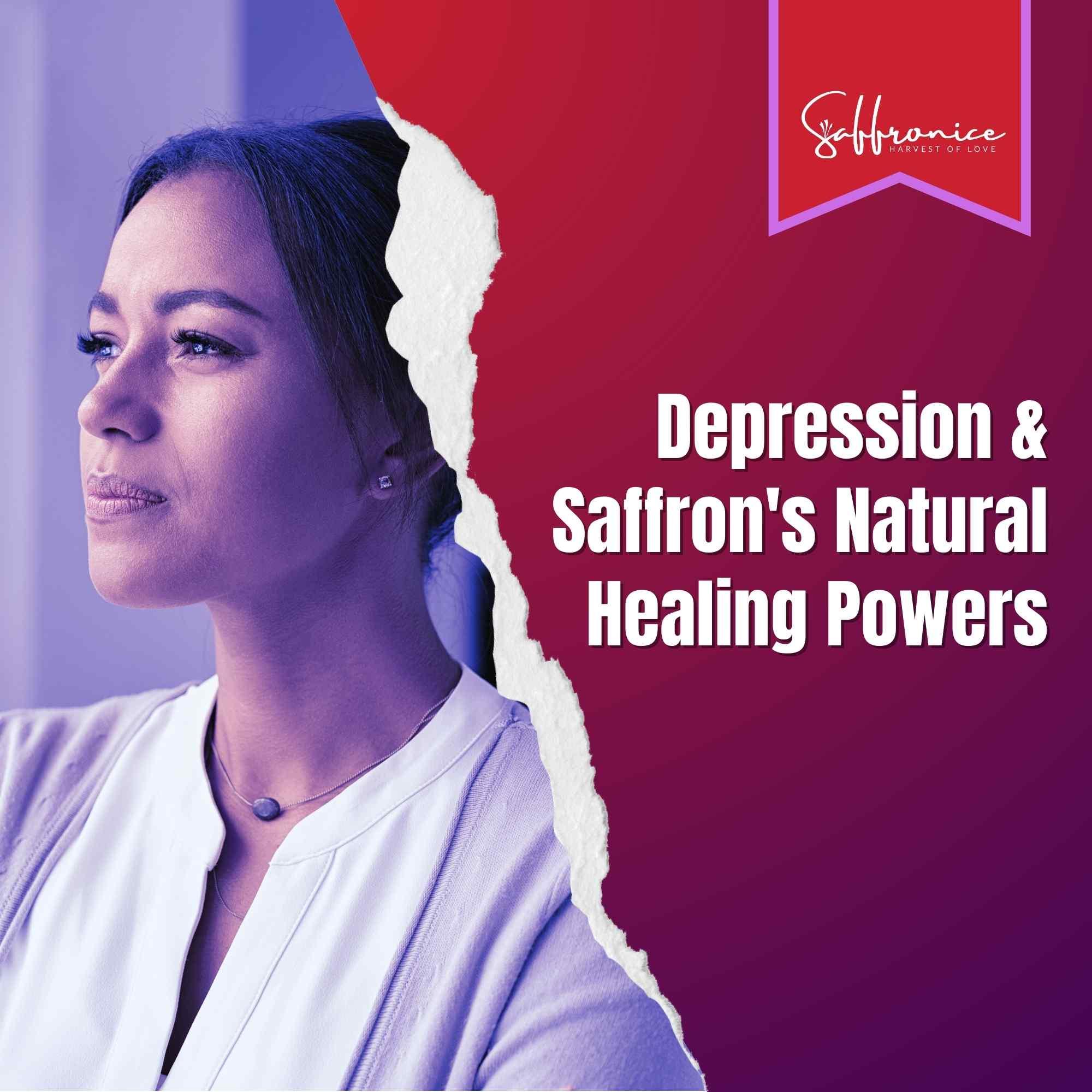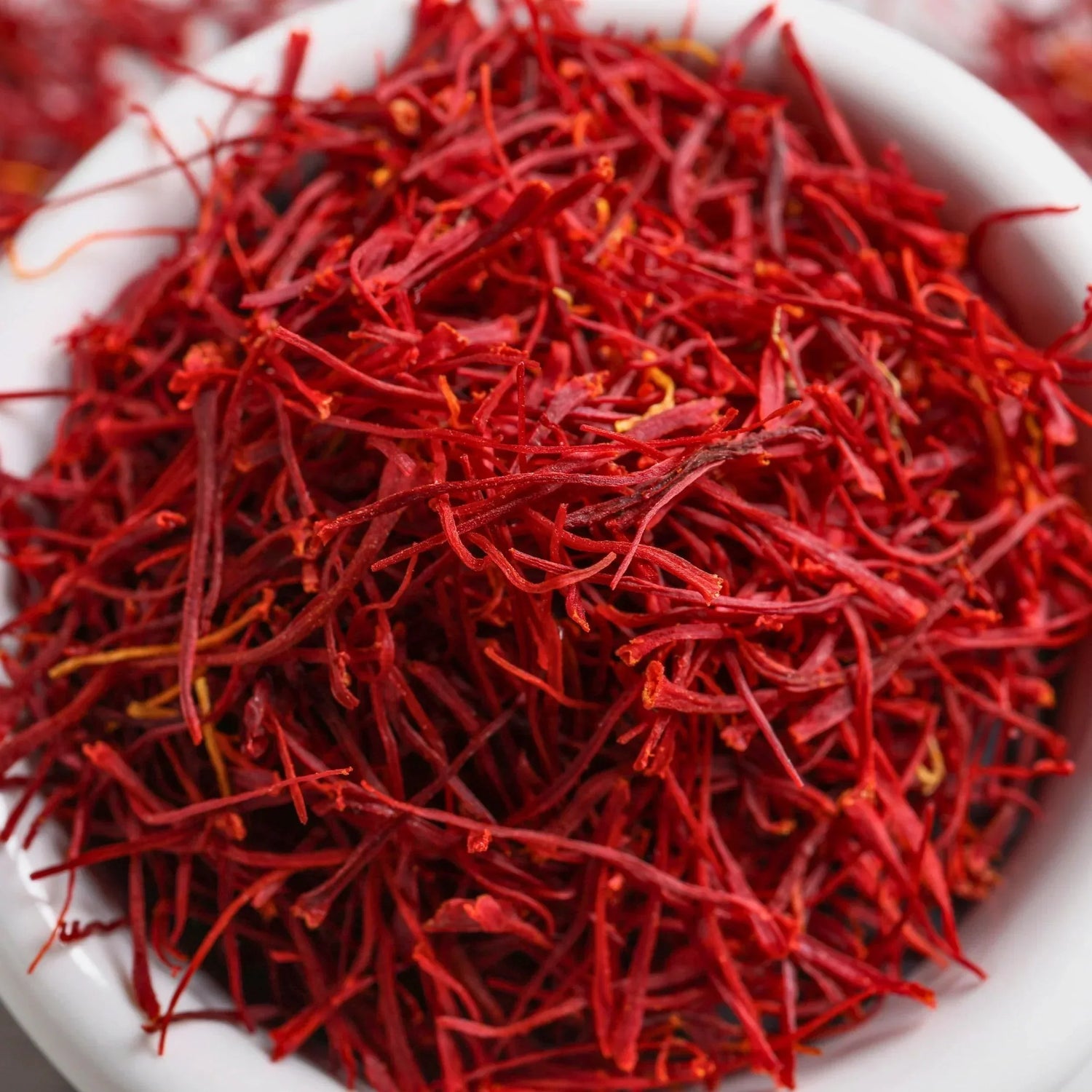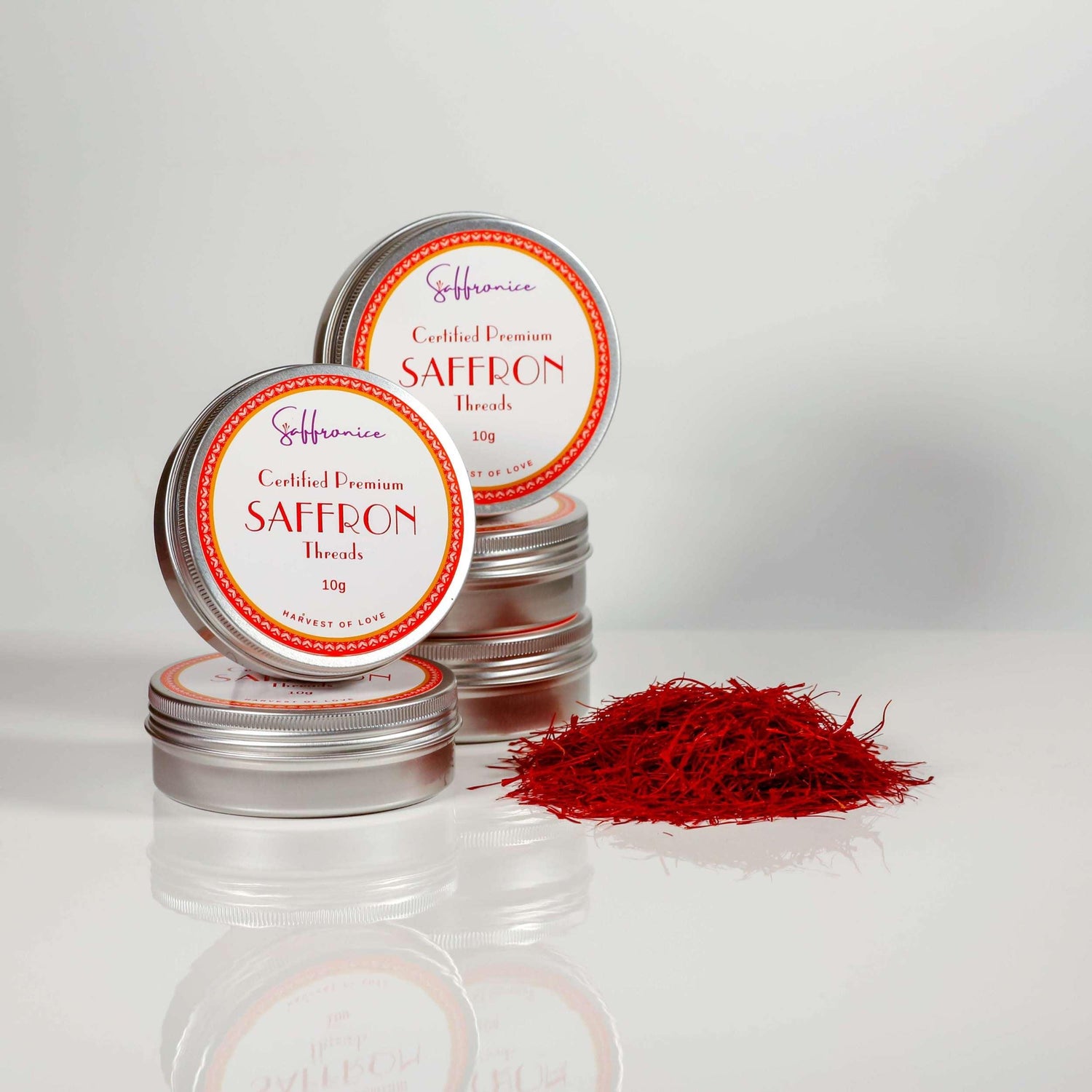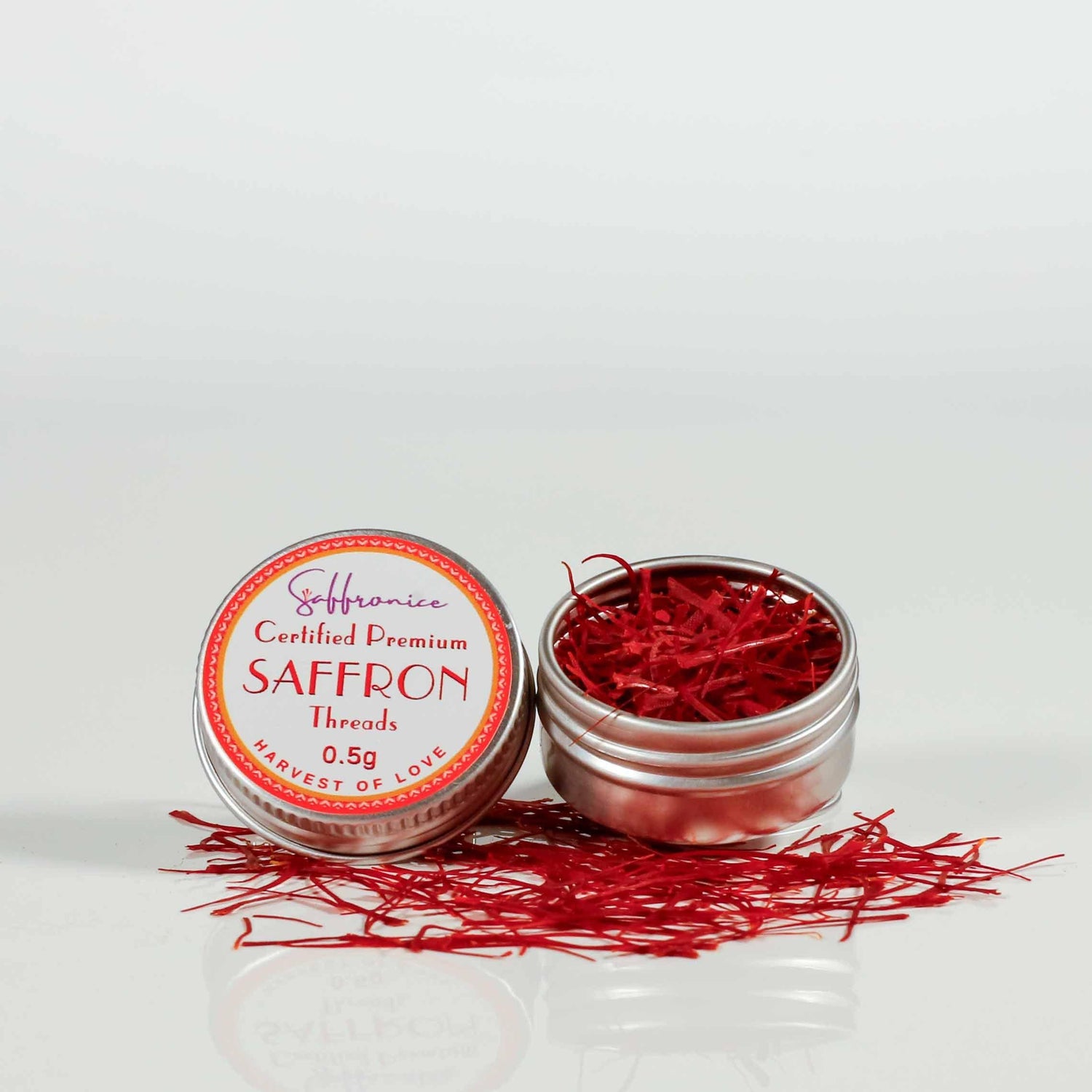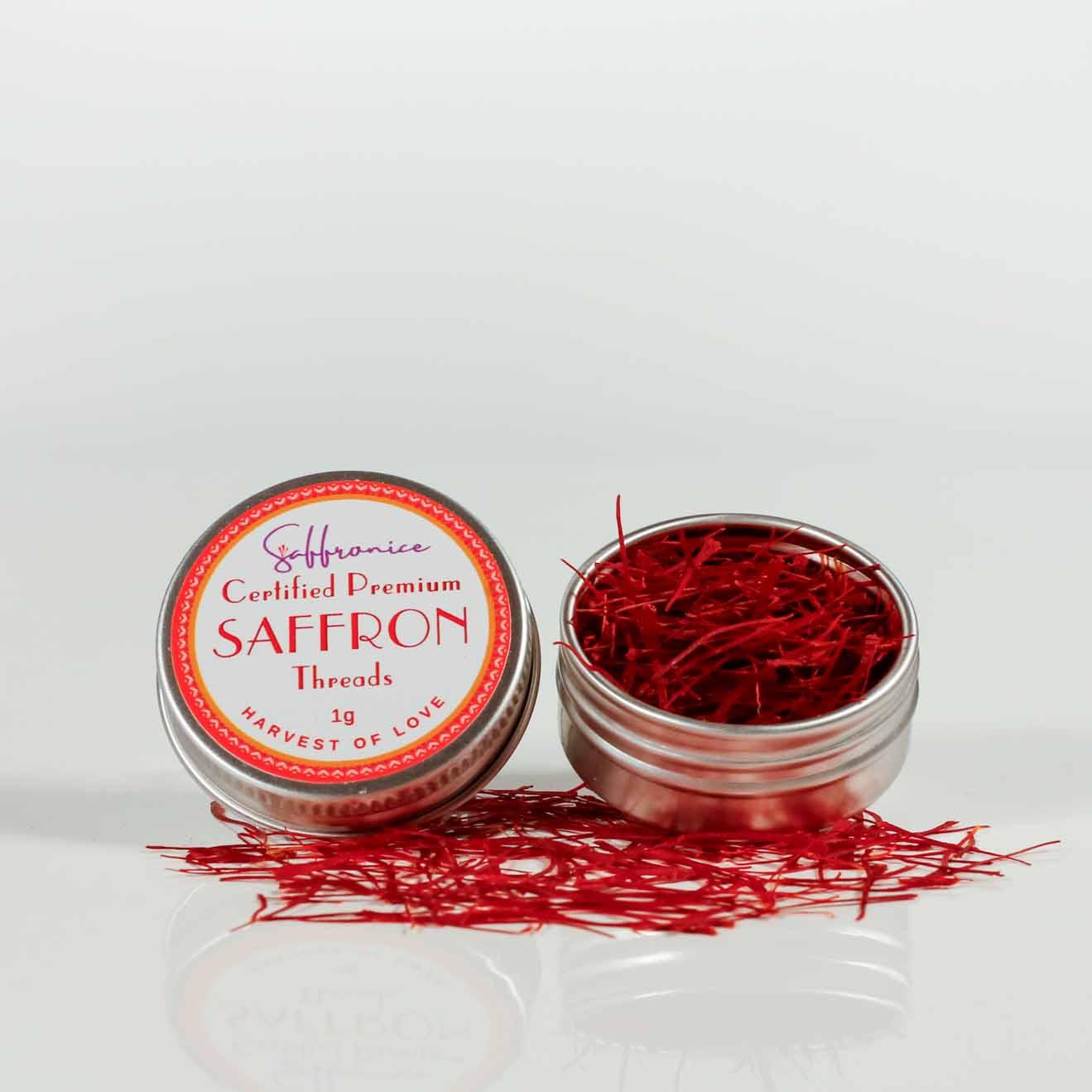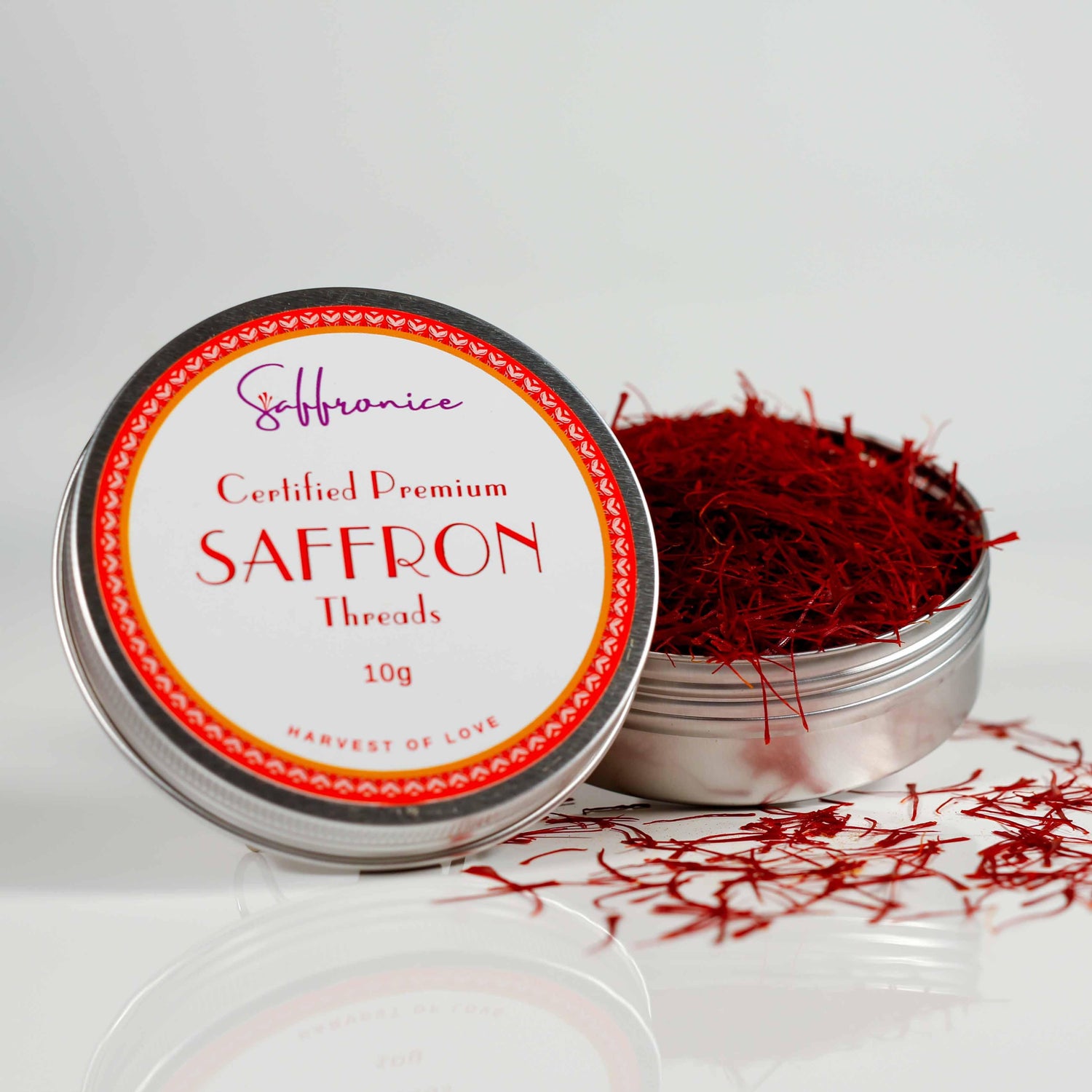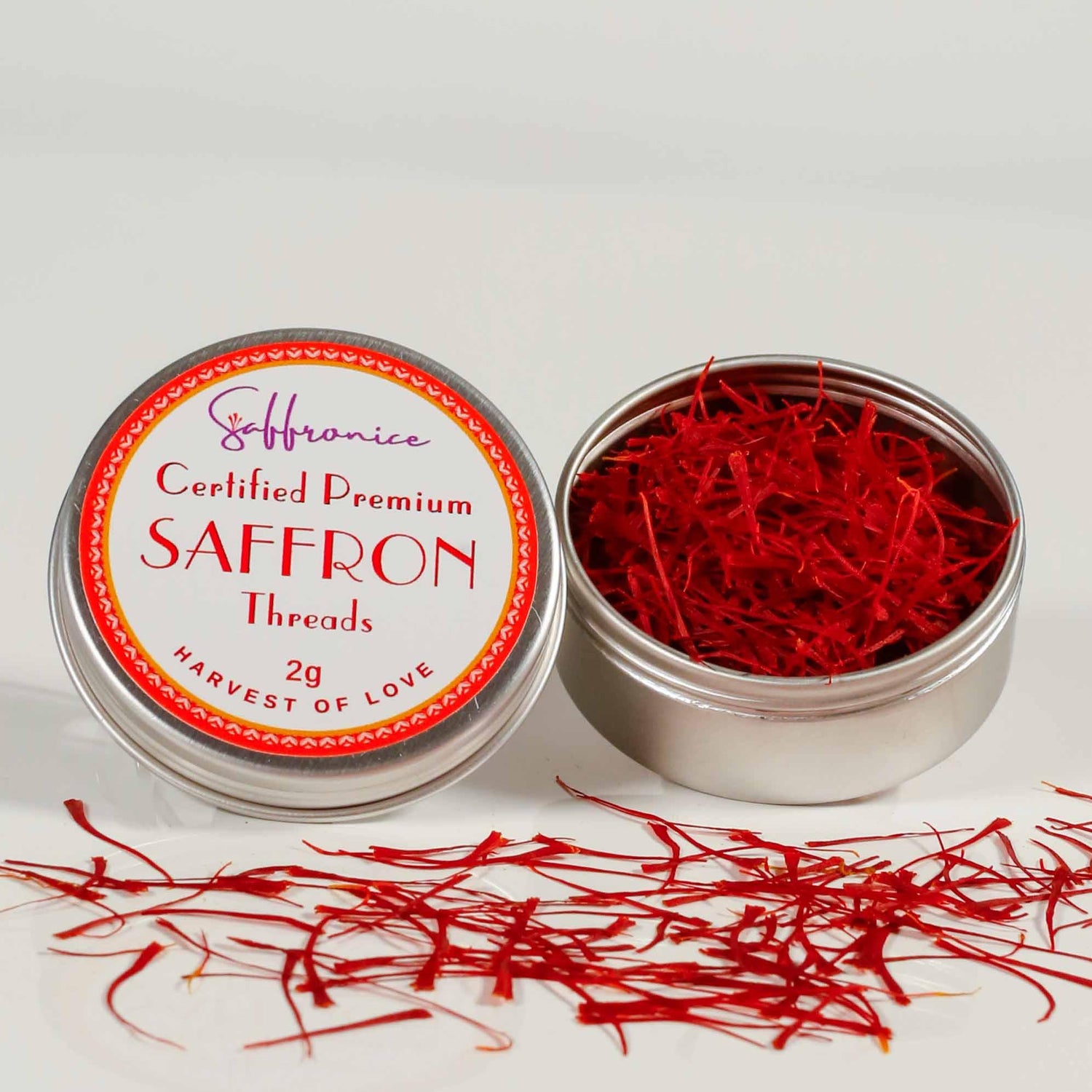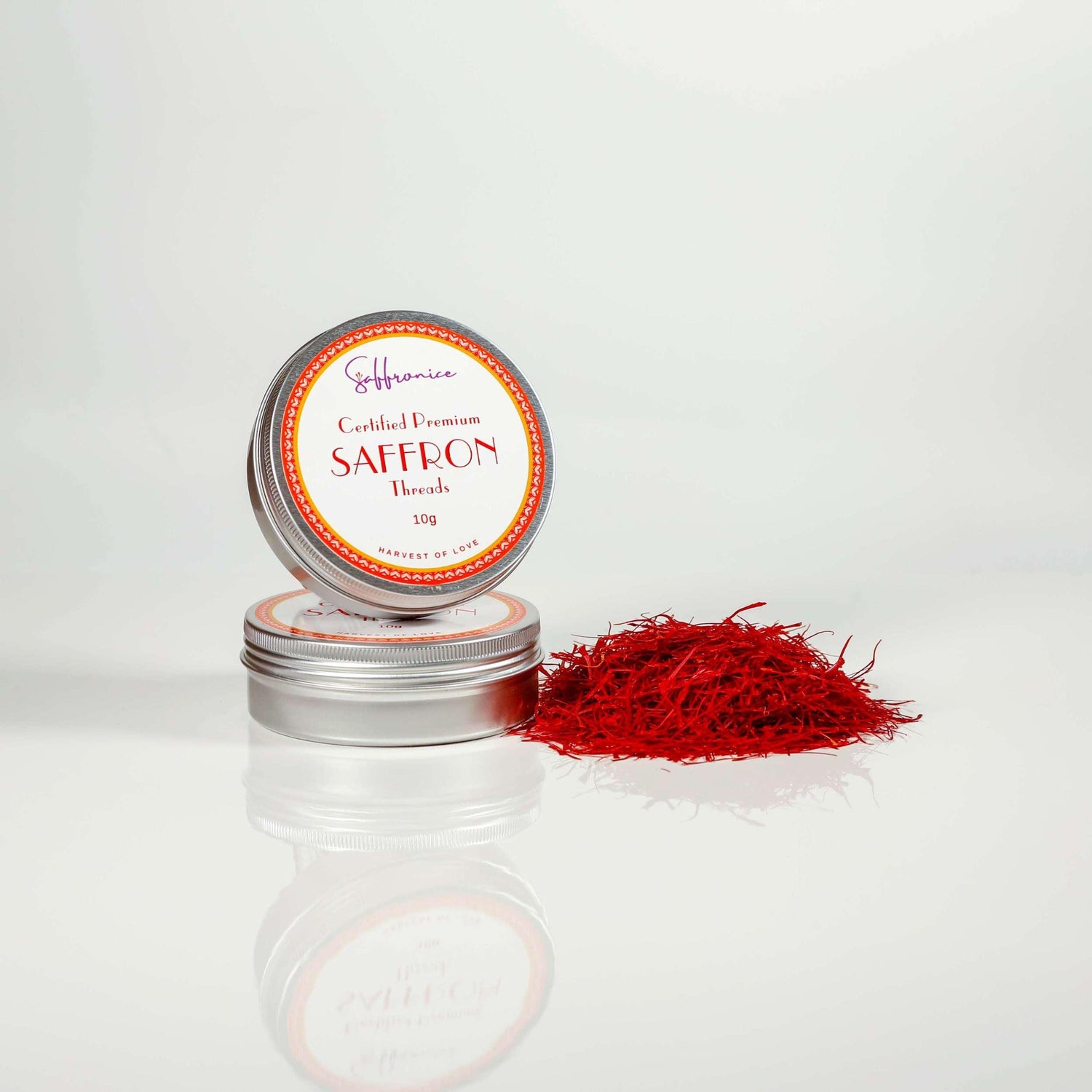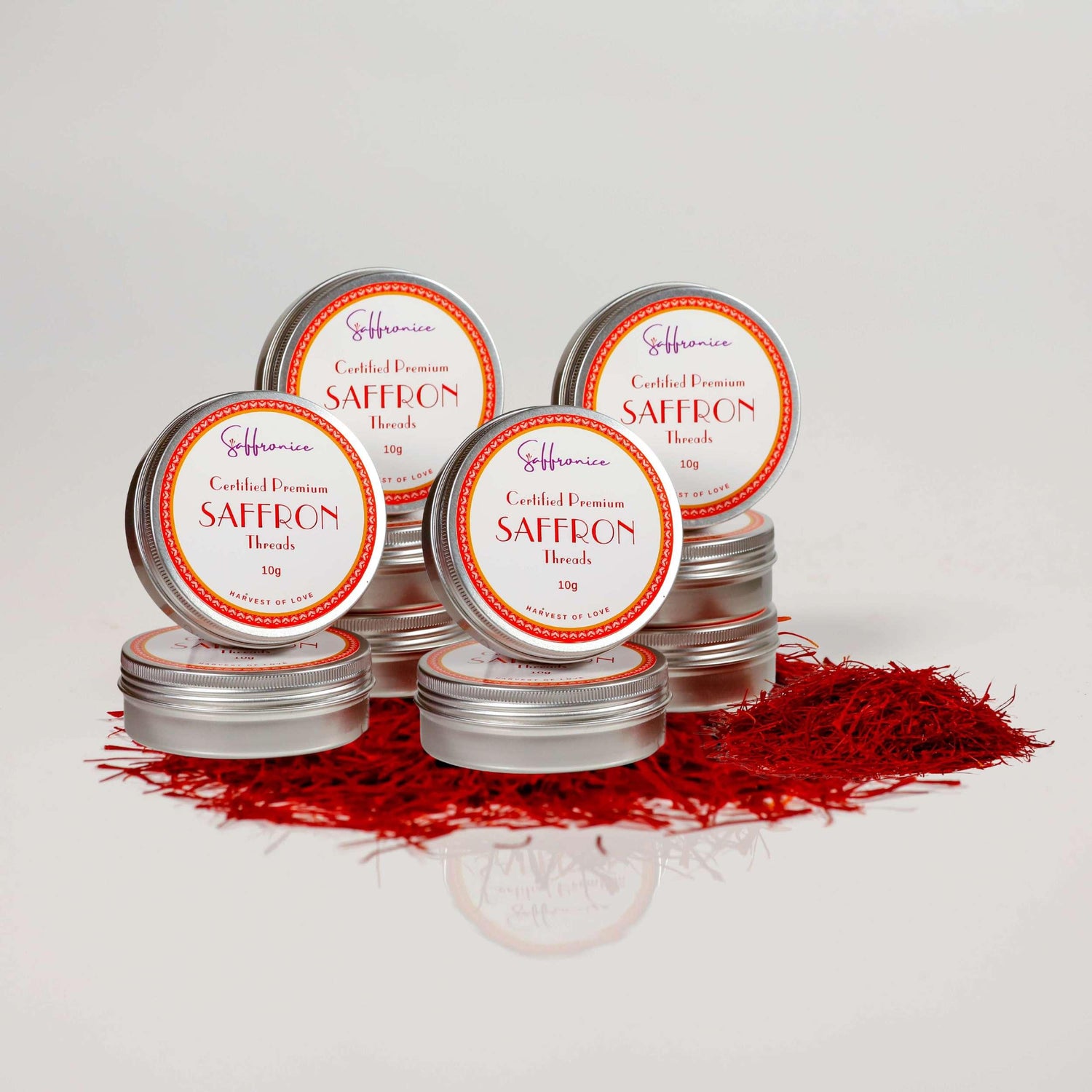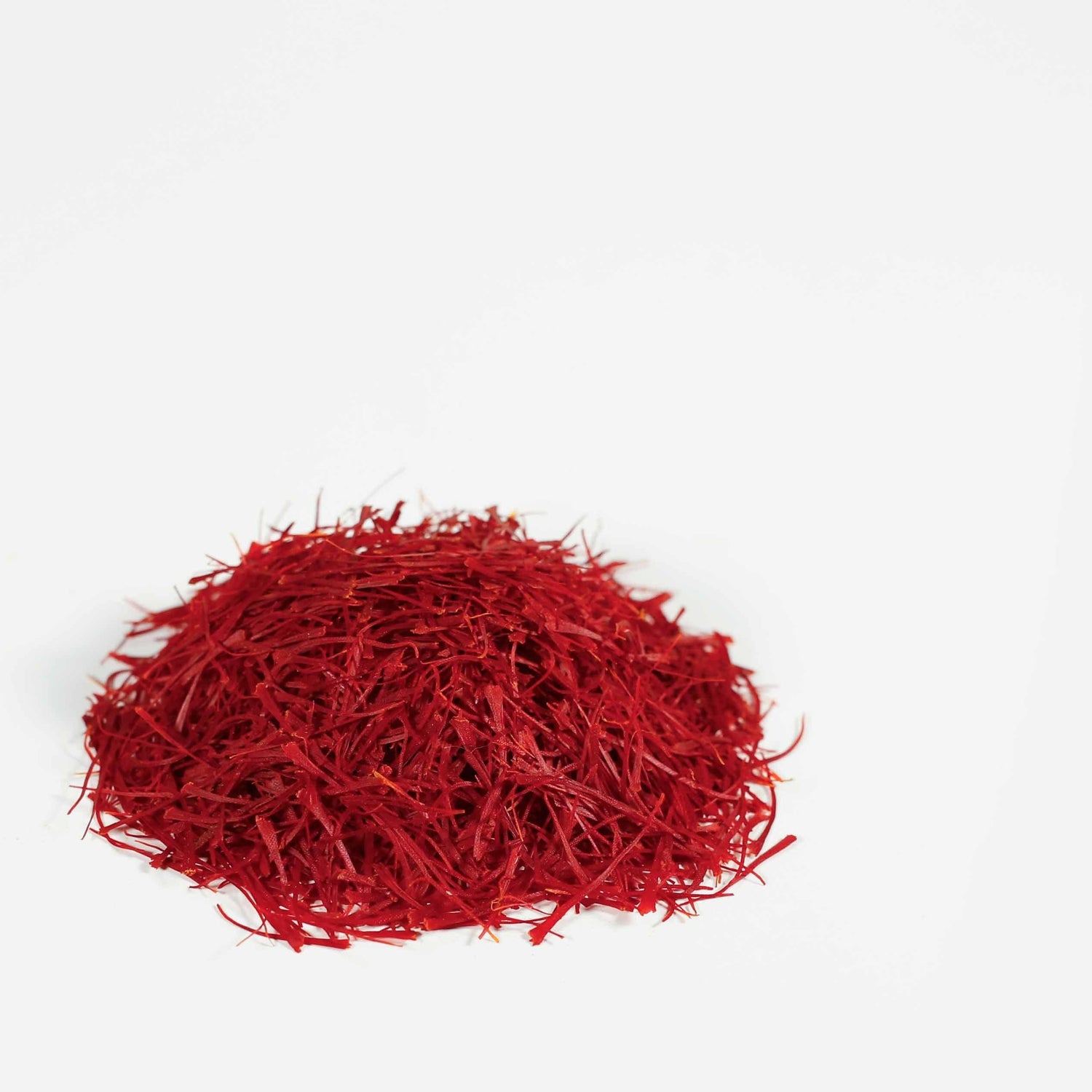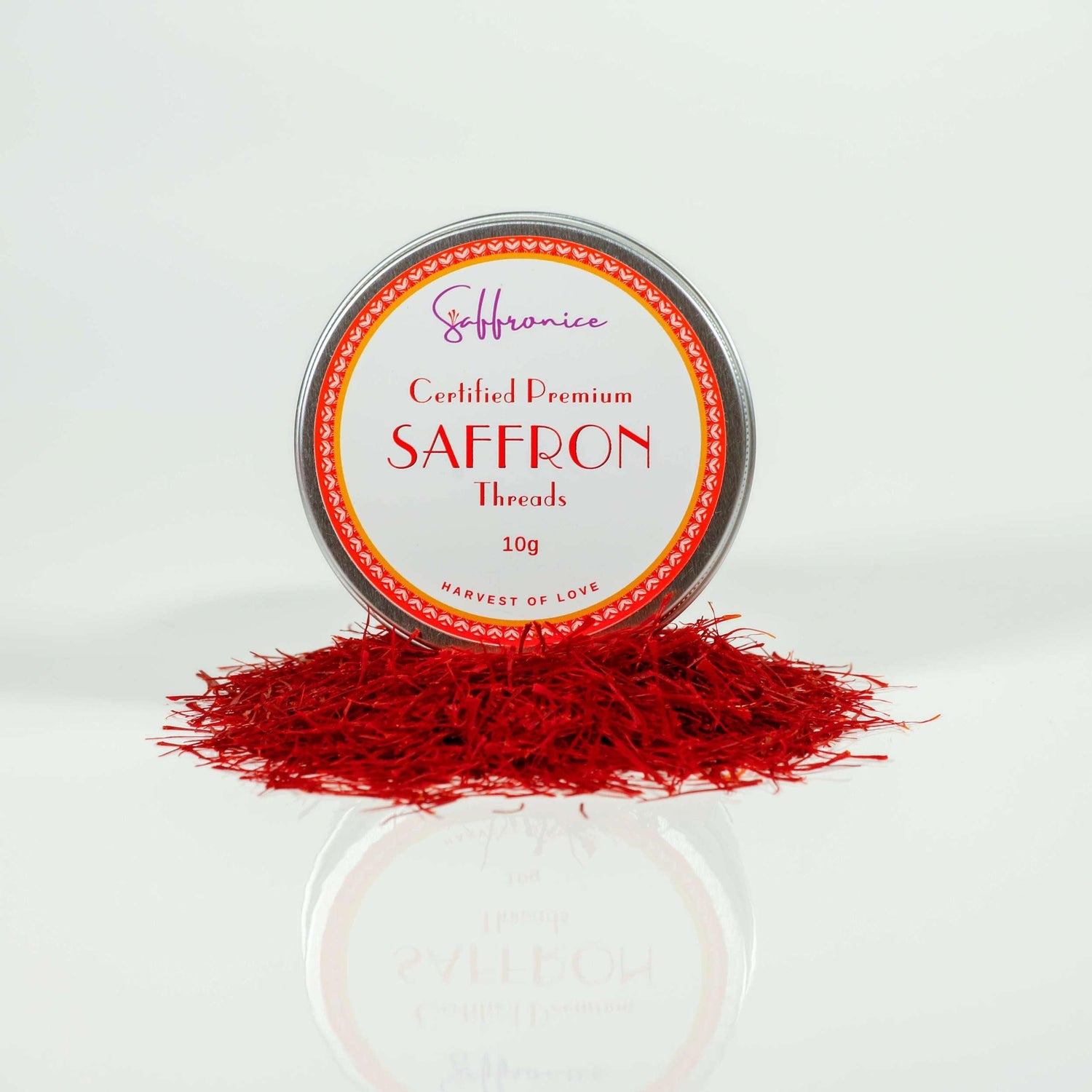What are the benefits of taking saffron supplements for depression?
Saffron supplements are known for their mood-enhancing properties. They contain crocin, a compound that can influence neurotransmitters in the brain like serotonin, known for regulating mood. By balancing these neurotransmitters, saffron supplements can help alleviate symptoms of depression, such as low mood, anxiety, and fatigue. They also possess antioxidant properties that combat oxidative stress linked to depression.
How long does it take to see the effects of saffron supplements on mood and depression?
The time it takes to observe the effects of saffron supplements can vary. Generally, some individuals may start noticing mood improvements within a few weeks of regular supplementation. However, this time frame can differ based on individual factors such as the severity of symptoms, lifestyle, and the body's unique response to the supplement.
Can saffron supplements replace my current antidepressant medication?
Saffron supplements should not be used as a direct replacement for prescribed antidepressant medications without consulting a healthcare provider. While they can be an effective complementary treatment, it's essential to seek professional advice before making any changes to your medication regimen, especially if you have moderate to severe depression.
Are there any side effects of taking saffron supplements for depression?
Saffron supplements are generally well-tolerated, but like all supplements, they can have side effects in some individuals. These may include digestive upset, dry mouth, or dizziness. It's rare but possible to have an allergic reaction to saffron. Always start with a lower dose to gauge your body's response, and consult a healthcare provider if you experience adverse effects.
What is the recommended dosage of saffron supplements for treating depression?
The recommended dosage of saffron supplements typically ranges between 30 and 300 mg daily, divided into two doses, depending on the individual's health conditions and tolerability. Dosages can vary based on the specific product and individual needs. Following the manufacturer's guidelines and consult with a healthcare provider for personalised dosage advice is essential.
Can I take saffron supplements alongside other depression treatments?
Saffron supplements can generally be taken alongside other depression treatments, such as therapy and medication. However, it's crucial to consult with a healthcare provider to ensure there are no interactions with existing treatments and to devise an integrated approach to managing depression.
How do I choose a high-quality saffron supplement?
When selecting a saffron supplement, look for products that specify the concentration of active compounds like Crocin and Safranal. Choose supplements from reputable brands with good manufacturing practices. Check for third-party testing and certification to ensure purity and potency. Avoid products with unnecessary additives or fillers.
A deep dive into understanding depression

Welcome to a deep dive into understanding depression and exploring the potential of saffron supplements in its management. Depression, often misunderstood, is a severe mental illness affecting millions globally. It's not just about feeling sad; it's a condition that alters brain chemistry and encompasses a range of emotional and physical symptoms.
Recognising the widespread impact of depression, it's crucial to explore effective treatment strategies. Here, we focus on a natural and promising solution: saffron supplements. Known for its culinary uses, saffron also harbours potent compounds like Crocin and Safranal, which have shown potential in mood regulation, akin to conventional antidepressants but with fewer side effects.
In this article, we'll explore the multifaceted nature of depression and the global statistics surrounding it and delve into how saffron supplements can offer a natural approach to combating this pervasive condition. Join us as we unfold the layers of this complex topic, backed by scientific evidence and practical guidance for those considering saffron as part of their mental health regimen.
Depression Demystified: Understanding the Illness
Depression is often cloaked in misconception, but it's time to demystify this complex mental health condition. Far more than just a fleeting feeling of sadness, depression is a significant, measurable illness that profoundly affects brain function and overall well-being.
The Nature of Depression: More Than Just Sadness
At its core, depression is a disorder that disrupts the brain's biochemistry. Unlike everyday mood fluctuations, it is characterised by persistent sadness, hopelessness, and a lack of interest or pleasure in activities. These symptoms are not fleeting; they linger, affecting one's daily life, work, and relationships.
Contributing Factors: A Complex Web

The roots of depression are diverse and multifaceted, involving an intricate interplay of biological, psychological, and social factors:
-
Biological Aspects: There's a significant genetic component to depression. Imbalances in neurotransmitters, the brain's chemical messengers, also play a crucial role. Hormonal changes, such as those during pregnancy or menopause, can trigger depressive symptoms.
-
Psychological Triggers: Personal history and individual psychology are key. Traumatic events, long-term stress, or a history of other mental health disorders can increase susceptibility to depression.
-
Environmental Influences: One's social environment, including relationships, work stress, and lifestyle choices, can significantly impact mental health. Prolonged exposure to adverse conditions, like chronic stress or isolation, can be catalysts for depression.
-
Physiological Factors: Certain medications and chronic medical conditions can also contribute to or exacerbate depression.
Understanding depression requires acknowledging its complexity. It's not a condition that can be "snapped out of." It's a severe health issue that needs empathy, understanding, and appropriate treatment.
A Global Concern
Depression's reach is global. The World Health Organisation (WHO) recognises it as a leading cause of disability worldwide. Its impact spans ages, cultures, and socioeconomic backgrounds, making it a universal health concern.
Recognising and treating depression early is crucial. Awareness and understanding are the first steps towards effective management. By shedding light on this often misunderstood illness, we can pave the way for more compassionate, informed approaches to mental health care. 🌍💚🧠
Global Impact of Depression: Insights from WHO

Depression isn't just a personal struggle; it's a global issue that affects millions. The World Health Organisation (WHO) has shed light on the widespread prevalence of this condition, emphasising its impact on people from all walks of life around the world.
The Far-Reaching Effects of Depression
-
Prevalence: According to WHO, depression is a common mental disorder globally, with more than 264 million people affected. It knows no borders, impacting individuals across different ages, cultures, and socioeconomic backgrounds.
-
Disability and Productivity: Depression is a leading cause of disability worldwide. It can significantly hinder an individual's ability to function at work, at home, or in the community. The loss of productivity resulting from depression and anxiety disorders is estimated to cost the global economy US$ 1 trillion each year.
-
A Barrier to Development: In many parts of the world, resources for mental health are limited or non-existent. This lack of support exacerbates the impact of depression, making it a barrier to personal and economic development.
The Importance of Early Diagnosis and Treatment
-
Early Intervention: Recognising the signs of depression early and seeking treatment promptly can significantly improve outcomes. However, due to stigma or lack of awareness, many people delay or avoid seeking help.
-
Access to Care: WHO emphasises the importance of making mental health care accessible and affordable. This includes integrating mental health into primary health care, increasing funding for mental health services, and raising public awareness.
-
Breaking the Stigma: A significant challenge in addressing depression globally is overcoming the stigma attached to mental health issues. Education and open conversations are crucial to changing perceptions and encouraging those suffering to seek help.
Saffron Supplements: Nature's Answer to Depression

Saffron, a revered spice, is now recognised as a natural treatment for depression. Its active compounds, mainly crocins and safranal, have shown mood-regulating effects. These components are believed to impact the brain's serotonin pathways, similar to conventional antidepressants, but with a more natural approach.
How Saffron Benefits Depression Patients
The use of saffron in treating depression has gained attention due to its diverse therapeutic properties. Let's explore how saffron offers a natural approach to alleviating depressive symptoms.
-
Neurochemical Influence on Mood Regulation:
-
Serotonin Enhancement: Saffron's active components, particularly crocins and safranal, have been found to influence serotonin pathways in the brain. Serotonin is a crucial neurotransmitter that plays a significant role in mood stabilisation. By boosting serotonin levels, saffron can help uplift mood and reduce feelings of depression.
-
Balancing Neurotransmitters: Besides serotonin, saffron may also affect other mood-related neurotransmitters, such as dopamine and norepinephrine, contributing to its overall mood-enhancing effects.
-
Combating Oxidative Stress with Antioxidants:
-
Reducing Oxidative Damage: Oxidative stress is a condition where there's an imbalance between free radicals and antioxidants in the body. This imbalance can contribute to the development and progression of depression. Saffron's rich antioxidant content helps neutralise harmful free radicals, thus reducing oxidative stress.
-
Promoting Brain Health: By combating oxidative stress, saffron not only aids in alleviating depressive symptoms but also contributes to overall brain health. This protective effect is crucial, as oxidative stress is implicated in the ageing process and various neurodegenerative diseases.
Comparing Saffron and Conventional Antidepressants

While conventional antidepressants are effective, they often come with side effects. Saffron, on the other hand, has shown a favourable safety and tolerability profile, making it a viable complementary therapy for depression.
Validating Saffron's Efficacy: Clinical Study Highlights
The therapeutic potential of saffron in treating depression has been increasingly validated through scientific research, positioning it as a promising natural antidepressant.
-
2013 Study on Saffron vs. Fluoxetine:
-
A significant study published in 2013 compared the effects of saffron to fluoxetine (Prozac), a widely prescribed antidepressant. The research found that saffron was equally effective in treating mild to moderate depression, showcasing its potential as a natural alternative with fewer side effects.
-
2014 Meta-Analysis: Efficacy Over Placebo:
-
In 2014, a comprehensive meta-analysis reviewed several clinical trials examining Saffron's antidepressant properties. The analysis concluded that saffron had a significantly more significant effect than placebo in treating depressive symptoms. This finding is crucial as it underscores the effectiveness of saffron not just as a supplemental treatment but as a primary intervention for depression.
-
2018 Randomised Clinical Trial: Impact on MDD:
-
A 2018 study focused on patients with major depressive disorder (MDD), one of the most severe forms of depression. The trial revealed that saffron supplementation resulted in significant symptom reduction in MDD patients, further corroborating earlier findings and suggesting its effectiveness in more severe depression cases.
Saffron in Scientific Research: Mental Health Breakthroughs

The body of research on saffron and mental health continues to grow, revealing its vast potential in mental health management. Key takeaways from ongoing research include:
-
Neurotransmitter Regulation: Saffron appears to regulate neurotransmitters crucial for mood regulation, akin to how many synthetic antidepressants operate.
-
Safety and Tolerability: A consistent finding across studies is Saffron's high safety profile and tolerability, making it a suitable option for long-term use.
-
Holistic Approach: Saffron's benefits extend beyond just alleviating depressive symptoms. Its antioxidant properties contribute to overall wellness, aligning with a holistic approach to mental health.
These studies collectively advocate for saffron as a viable, natural alternative or complementary treatment for depression. While saffron supplements should not replace conventional treatment modalities, especially in severe cases, they offer a promising adjunct or alternative for individuals seeking natural remedies. With ongoing research, saffron continues to cement its place as a valuable tool in mental health management.
Your Daily Saffron Supplement Guide
Incorporating saffron supplements into your daily routine can be a significant step towards managing depression. Here's a more detailed guide to help you get started:
-
Consult a Healthcare Professional: Before you begin, talking to a healthcare provider is crucial. They can provide personalised advice based on your specific health needs and conditions and ensure that saffron supplements won't interfere with any existing medications or health issues.
-
Determining the Right Dosage: Saffron supplement dosages can vary widely, typically 30 to 300 mg daily. The exact dosage may depend on several factors, including the severity of your symptoms, your body's response to saffron, and the specific form of the supplement. It's essential to follow the guidance of a healthcare professional or the manufacturer's instructions.
-
Consistency for Maximum Benefit: Like many natural supplements, Saffron's benefits are most noticeable with regular, consistent use. Establishing a routine, such as taking your supplement simultaneously daily, can help ensure you get all the doses.
Integrating Saffron into a Holistic Lifestyle

To maximise the benefits of saffron supplements for depression, it's beneficial to incorporate them into a holistic lifestyle:
-
Balanced Diet: Nutrient-rich foods can support brain health and overall well-being. Incorporate a variety of fruits, vegetables, whole grains, lean proteins, and healthy fats into your diet.
-
Regular Exercise: Physical activity is known to boost mood and reduce symptoms of depression. Aim for at least 30 minutes of moderate exercise most days of the week.
-
Adequate Sleep: Quality sleep is crucial for mental health. Establish a regular sleep schedule and create a restful environment to promote better sleep.
Documenting Your Saffron Journey: A Personal Approach
Keeping a journal can be a powerful tool in your mental health journey:
-
Track Your Mood and Symptoms: Regularly write down your feelings, symptoms, and noticeable changes. This can help you and your healthcare provider assess the effectiveness of the saffron supplements.
-
Note Lifestyle Changes: Along with your supplement intake, record any changes you're making, such as dietary adjustments, exercise habits, and sleep patterns. This holistic view can help identify what works best for you.
-
Reflect on Your Progress: Journaling provides an opportunity for reflection and self-awareness. It can be a therapeutic process, offering insights into your mental health journey.
By following these guidelines and integrating saffron supplements into a comprehensive lifestyle approach, you can harness their full potential in managing depression and enhancing your overall well-being.
Learn more about Saffron's Health Benefits and Risks.


